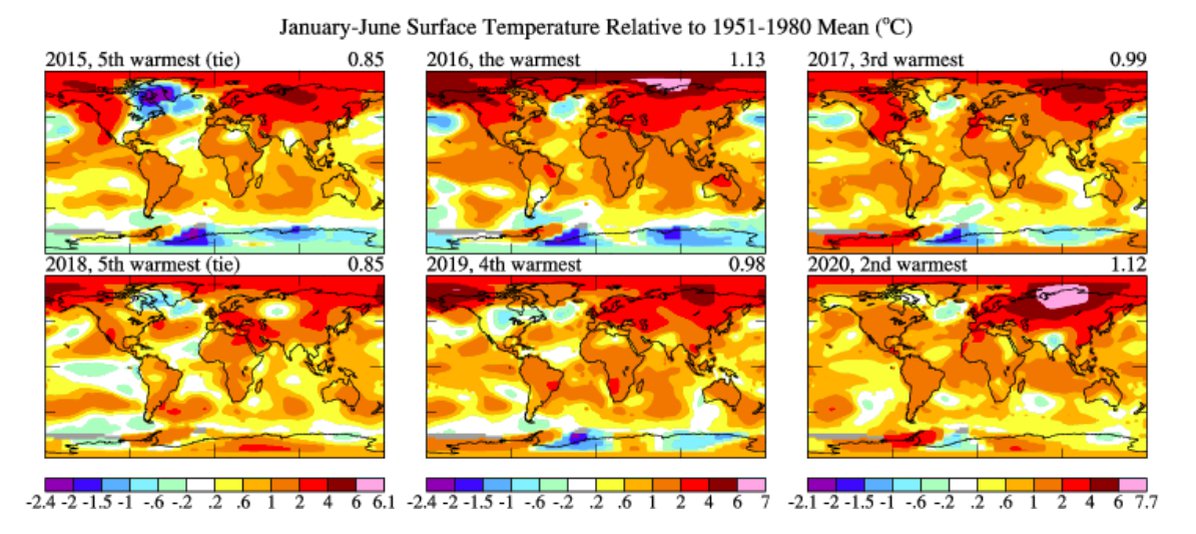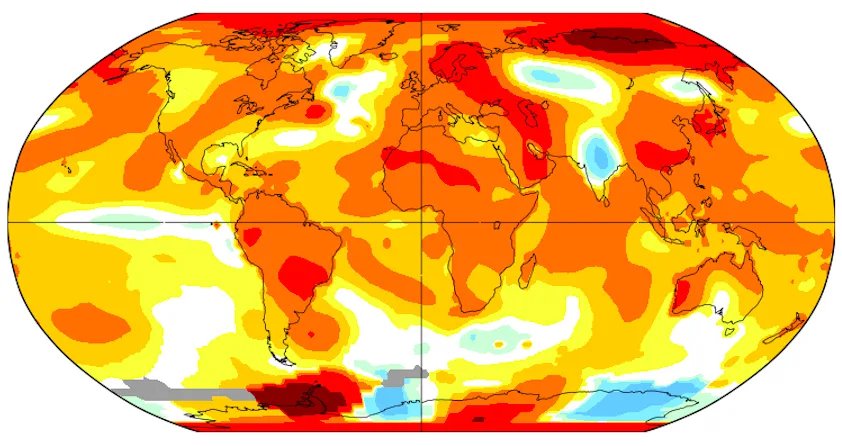The data from National Aeronautics and Space Administration (NASA)’s Goddard Institute for Space Studies just revealed that in 140 years of direct surface measurements, the first half of 2016 was hotter than this year’s January-June on record.
2016 was believed to be the warmest year ever recorded. 19 of the last 20 years were recorded as the warmest.
June 2020 tied (with 2019!) for the warmest June. The horse race with 2016 for warmest year tightens! https://t.co/Txbp33B8Aw George Jones is still calling the race – “and the winner loses all!” https://t.co/bB2VsuZSmq June 2020 Global Temperature Update: https://t.co/xAEaqwxofF pic.twitter.com/mKIxBy9daz
— James Edward Hansen (@DrJamesEHansen) July 13, 2020
We’re undoubtedly living in the hottest climates ever experienced and we also just went through one of the more severe heatwaves this year.
The planet is reacting to the highest levels of atmospheric carbon dioxide in at least 8,00,000 years. But it is more likely that it’s reacting to the highest levels of atmospheric CO2 in millions of years.

An environmental chemist at Michigan Technological University, Sarah Green said:
The recent data shows that the world is heating in line with predictions.
The average global temperatures are over 1 degree celsius above temperatures between 1950 to 1980. This is a time period that scientists used as an average 20th century comparison.
In the period between January through June, temperatures were 1.12 degree celsius above the average. June 2020 itself tied June 2019 as the warmest month on record.

According to the United Nations, stabilizing the climate at 1.5 degree celsius would keep off the worst consequences of a warming planet.
Examples include melted ice sheets, depleted Arctic sea ice, extremely hot days, devastated coral reefs, surging wildfires, and beyond. Sarah Green also said:
The ongoing heating of the Arctic and the massive Siberian heat wave this summer, are warning signals of the disruptive impacts shifting a society out of its normal climate.
As of now, there is a 75% chance that 2020 will become either the warmest year ever recorded or the second warmest. Now whether it surpasses 2016 or not, only time will tell.

















